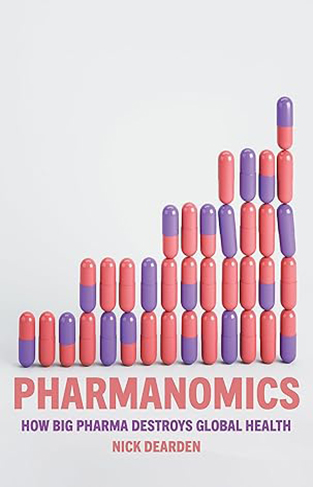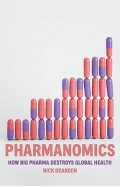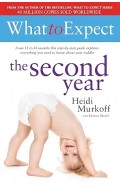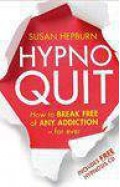Pharmanomics How Big Pharma Destroys Global Health
By: Nick Dearden
-
Rs 6,195.00
Due to constant currency fluctuation, prices are subject to change with or without notice.
In Pharmanomics, investigative journalist Nick Dearden digs down into the way we produce our medicines and finds that Big Pharma is failing us, with catastrophic consequences.
Big Pharma is more interested in profit than health. This was made clear as governments rushed to produce vaccines during the Covid pandemic. Behind the much-trumpeted scientific breakthroughs, major companies found new ways of gouging billions from governments in the West while abandoning the Global South. But this is only the latest episode in a long history of financialising medicine – from Purdue's rapacious marketing of highly addictive OxyContin through Martin Shkreli's hiking the price of a lifesaving drug to the 4.5 million South Africans needlessly deprived of HIV/AIDS medication.
Since the 1990s, Big Pharma has gone out of its way to protect its property through the patent system. As a result, the business has focused not on researching new medicines but on building monopolies. This system has helped restructure our economy away from invention and production in order to benefit financial markets. It has fundamentally reshaped the relationship between richer and poorer countries, as the access to new medicines and the permission to manufacture them is ruthlessly policed. In response, Dearden offers a pathway to a fairer, safer system for all.
In Pharmanomics, investigative journalist Nick Dearden digs down into the way we produce our medicines and finds that Big Pharma is failing us, with catastrophic consequences.
Big Pharma is more interested in profit than health. This was made clear as governments rushed to produce vaccines during the Covid pandemic. Behind the much-trumpeted scientific breakthroughs, major companies found new ways of gouging billions from governments in the West while abandoning the Global South. But this is only the latest episode in a long history of financialising medicine – from Purdue's rapacious marketing of highly addictive OxyContin through Martin Shkreli's hiking the price of a lifesaving drug to the 4.5 million South Africans needlessly deprived of HIV/AIDS medication.
Since the 1990s, Big Pharma has gone out of its way to protect its property through the patent system. As a result, the business has focused not on researching new medicines but on building monopolies. This system has helped restructure our economy away from invention and production in order to benefit financial markets. It has fundamentally reshaped the relationship between richer and poorer countries, as the access to new medicines and the permission to manufacture them is ruthlessly policed. In response, Dearden offers a pathway to a fairer, safer system for all.
Zubin Mehta: A Musical Journey (An Authorized Biography)
By: VOID - Bakhtiar K. Dadabhoy
Rs 840.00 Rs 1,050.00 Ex Tax :Rs 840.00
Made to Stick: Why Some Ideas Take Hold and Others Come Unstuck
By: Chip Heath & Dan Heath
Rs 2,995.00 Ex Tax :Rs 2,995.00
Complete Guide to Womens Heart Health The Go Red for Women Way to Well Being & Vitality
By: American Heart Association
Rs 4,695.00 Ex Tax :Rs 4,695.00
The Angels Among Us: Incredible Photographs of Angels in Everyday Life
By: Skye Alexander
Rs 1,250.00 Ex Tax :Rs 1,250.00
Hypnoquit How To Break Free Of Any Addiction For Everincludes Free CD
By: Susan Hepburn
Rs 625.50 Rs 695.00 Ex Tax :Rs 625.50
No similar books from this author available at the moment.
No recently viewed books available at the moment.
Zubin Mehta: A Musical Journey (An Authorized Biography)
By: VOID - Bakhtiar K. Dadabhoy
Rs 840.00 Rs 1,050.00 Ex Tax :Rs 840.00














-120x187.jpg?q6)













